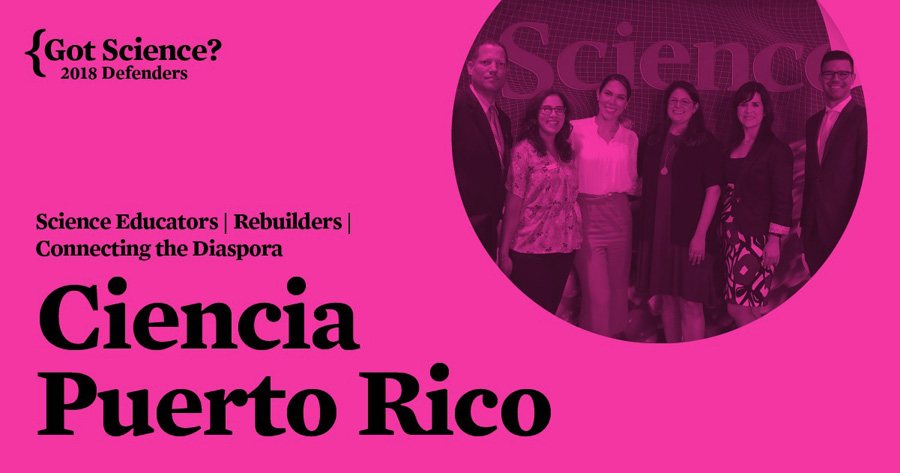CienciaPR recognized as a science defender by Union of Concerned Scientists

Ciencia Puerto Rico was named one of five “Science Defenders” of 2018, for its recovery efforts after Hurricane María, the nonprofit announced.
The distinction was awarded by the Union of Concerned Scientists (UCS), an organization advocating for evidence-based public policy that uses science to solve the most pressing problems on the planet.
As an immediate response to María, CienciaPR activated its network of more than 9,500 members to support the scientific community in Puerto Rico. The group created an information bank to help people find volunteer opportunities, where to make donations, and research grant policies.
“Puerto Rico has an incredibly capable scientific community, that is committed to taking the country forward through education and policies that are guided by scientific data,” said Giovanna Guerrero-Medina, executive director of CienciaPR and founder of the Puerto Rico Science Policy Action Network (PR-SPAN). “This award is for all of them.”
In collaboration with the Caribbean Division of AAAS and UCS, on Sept. 1, 2018, PR-SPAN was launched to “ensure that the scientific community can participate in the creation of public policies relevant to Puerto Rico, at the federal and local levels,” said Zulmarie Pérez-Horta, biologist and science policy expert, and one of the founders of the network.
CienciaPR also provided advocacy tools that Puerto Ricans in the diaspora could use to ask their academic institutions to respond in the wake of the disaster. A registry created by the organization received more than 450 offers of help from around the world, ranging from short internships in institutions outside of Puerto Rico, to materials and research equipment to replace those lost with the hurricane.
This registry was used to complement a fund established by the Puerto Rico Science, Technology and Research Trust, and the Caribbean Division of the American Association for the Advancement of Science (AAAS), to support the continuity of research, the restoration of affected equipment or spaces, and help students complete their studies, CienciaPR said.
The public policy experts that make up PR-SPAN are constantly monitoring the progress of legislation and measures that affect Puerto Rico, and that should be informed by science, such as proposals relevant to climate change, renewable energy, agriculture, innovation and health.
Their alerts and bulletins keep scientists informed and help them see how they can become involved.
“I hope PR-SPAN will become a trusted resource for people in Puerto Rico, particularly when it comes to legislation that has to do with science and technology,” said Adrián Rivera-Reyes, an expert in cancer biology and another founding member of the network.













